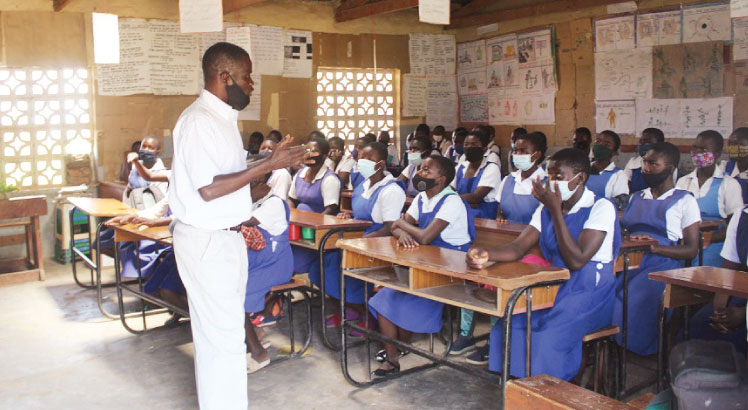‘Let’s show gays love’

Recently, the Centre for Development of People (Cedep)—with finding from Aids-Fondet (AF)—organised a workshop for religious leaders on Sexual Reproductive Health and Rights (SRH&R) with special focus on minority rights. One of the religious leaders was Sheikh Mdala Ali Tambuli who also made a presentation at the workshop. Ephraim Munthali caught up with Tambuli for a talk on his attitudes towards gays.
You have just concluded a workshop on human rights, particularly minority rights. What is your take home message from the workshop?
This workshop, which mainly covered Sexual Reproductive Health and Rights (SRH&R) for minority groups, was very important. As religious leaders, we are saying nowhere in the Bible or the Koran is it written that homosexuality is supposed to be there or promoted. On the other hand, what we are saying is that people who are practising this are supposed to be served on three things: They are supposed to be given love, they are supposed to get protection and also we have to look after them because they are human beings and are totally entitled to all human rights.
In the context of Muslim teachings, how do you strike that balance: Discouraging homosexuality as a sin while at the same time defending the rights of those who practise it?
As far as Islam is concerned, homosexuality is a sin and I make no apology for that. But I am also saying that as religious leaders, we have to take care of those men who have sex with other men (MSMs) or those who are in lesbian, gay, bisexual, transgender and intersex (LGBTI) relationships. All those groups of people have to be taken care of because they are sinners just like those who practise witchcraft, are womanisers or sex workers. If we protect these other sinners, why can’t we do the same for MSMs or LGBTIs?
Have you come across a gay person in your community or as part of your work?
We are not saying we have witnessed them doing that or we have seen them doing that, but we have them in our community.
What I meant was that has someone ever stood up in your presence and said: ‘I am gay?’
Yes, I have come across so many of them, whether gays or lesbians, they have come in the open. They have come to deliberate with us. They have come with their complaints to us that they are facing a lot of homophobia.
So, when they come to you to complain about homophobia, what is your first reaction and how do you help them?
The first thing is to comfort them. A lot of people harass them; people look at them as the worst sinners; people see them with negative attitudes, but what we are saying is that we should look after them, care about their health status, their education access, including their social status. We have to look after them because they are human beings just as we look after the other sinners I mentioned earlier.
Some people say the response to minority rights abuses, specifically when it comes to homosexuals, is also blurred by the over-sexualisation of the gay and lesbian issue. There is a lot of leaning towards discussing their sexuality rather than their humanity. What would you say to that?
Yes, the problem is that most people look at this issue in terms of sex only, but normally that is peripheral. These people do not do this as a choice; they do not choose to be MSMs or LGBTIs. It is something biological, something you cannot change or you cannot say we are going to pray for them or something like that because this is naturally how they were born.
Sheikh, are you telling me that Allah would naturally create a gay person?
In terms of human beings, I understand that there might be some people who were born with both sexual parts—female as well as male—while others have very unclear sex organs and others have clear either male or female sex organs but have high percentages of hormones of the other sex whether male or female, so it is very difficult to assess whether, for example, this one is a man as he is behaving or dressing or is a woman in practice.






…i can’t believe this is true,it sounds so sophisticated and too english but on the other side it’s socially inderstandable.
I hope time for judging like we are all gods is ending…